Having trouble viewing this email? Click here to open in your browser.
|
|
|
|
|
|
|
|
|
|
|
|
|
This Month in Mongolian Studies is a monthly listing of selected academic activities, resources and other material related to Mongolia. This list is based on information the ACMS has received and is presented as a service to its members. If you would like to submit information to be included in next month's issue please contact the ACMS at info@mongoliacenter.orgThis publication is supported in part by memberships. Please consider becoming a member of the ACMS, or renewing your membership by visiting our website at mongoliacenter.org/join. Thank you!
|
|
|
|
|
|
|
|
|
|
|
ACMS Announcements, News and Media References
|
|
|
INAUGURAL ACMS/LUCE MONGOLIA SUMMER FIELD SCHOOL CONCLUDED ON AUGUST 16
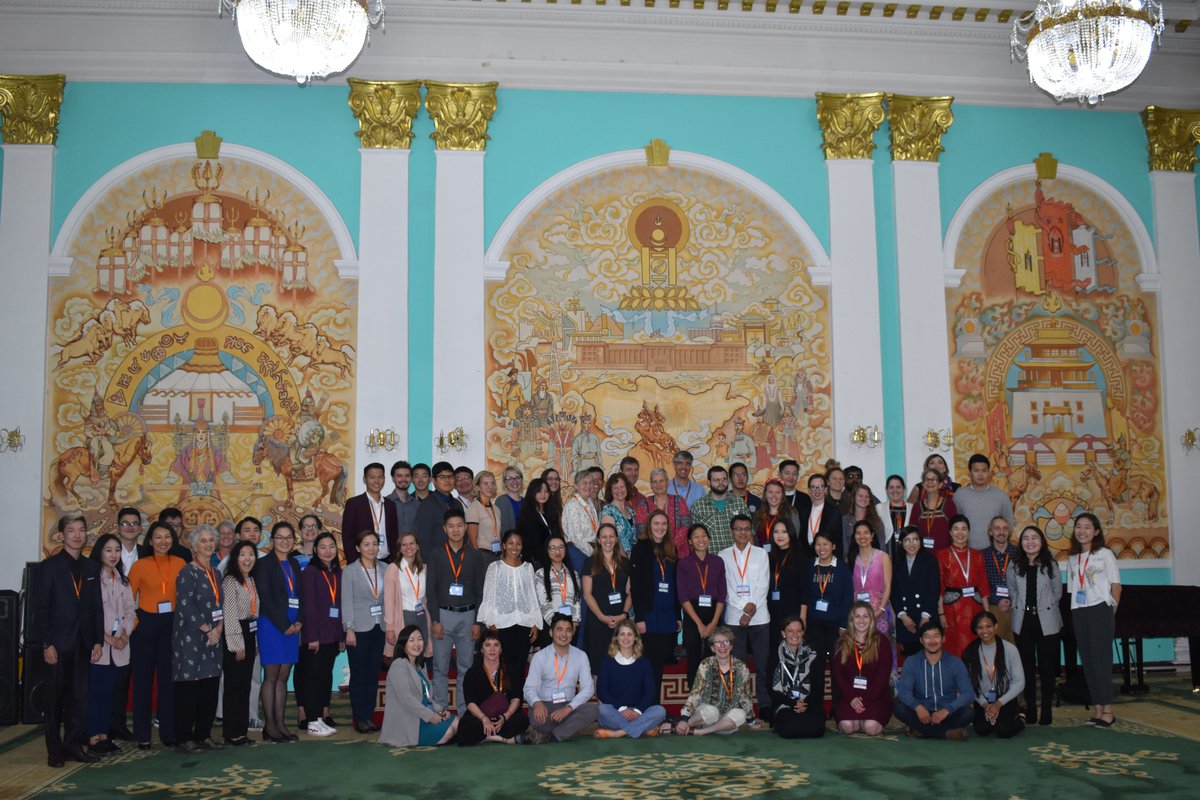 The first inter-disciplinary Summer Field Program organized by the American Center for Mongolian Studies (ACMS) and supported by the Henry Luce Foundation concluded in Ulaanbaatar on August 16, exceeding expectations and setting the stage for an even better program in summer 2020. The first inter-disciplinary Summer Field Program organized by the American Center for Mongolian Studies (ACMS) and supported by the Henry Luce Foundation concluded in Ulaanbaatar on August 16, exceeding expectations and setting the stage for an even better program in summer 2020.
Sixtytwo students, faculty and life-long learners from North American and Mongolia participated, joining together in an initial orientation program that included a welcome by the Ministry of Foreign Affairs as well as ACMS-organized meetings and lectures at the Natsagdorj Public Library in Ulaanbaatar.
Participants later divided into three groups, one focused on renewable energy, a second on archaeology and a third on rural-urban migration. Each program also included field visits to Khuvsgul, Selenge and Darkhan to learn and apply research techniques in the field.
North American-based instructors represented a variety of institutions including NOMAD Science, Macalester College, Hobart and William Smith College and Royal Roads University. Mongolian co-instructors came from the National Museum of Mongolia, National University of Mongolia and Ghent University in Belgium.
Prior to the start of the Field School Program, eighteen participants also attended the ACMS Wilderness First Responder Course, delivered by Trenton Harper from Aerie Backcountry Medicine and held at the Natsagdorj Public Library.
Here is some early positive feedback related to the program that has already been received, this one from a schoolteacher: "I had my parent openhouse last night after just two days of school. In elementary school the first week or so is mostly just teaching behaviour: walk through the hallway quietly, be kind to each other, don't climb the walls. I guess the wonder of all we studied came through though because three parents came up to me and said that their children had come home wanting to look up Mongolia and read all about it. Thanks yet again for the organizations and people that made the field school possible."
**********************************************
ACMS INTENSIVE SUMMER MONGOLIAN LANGUAGE PROGRAM CONCLUDED ON AUGUST 9
This year's intensive summer Mongolian program started on June 17 and successfully concluded on August 9 in Ulaanbaatar.
The program was led by veteran ACMS Mongolian Language Program Manager Dr. Tsermaa Tomorbaatar and had three well qualified participants: Zachary from the University of Pennsylvania; Corrina from the University of California-Berkeley; and Rulyi from Cambridge University. On the final day of the program students sat oral and written exams and delivered independent presentations in Mongolian.
The purpose of the ACMS Summer Mongolian Language Program is to provide intermediate-level students of the Mongolian language with an opportunity to enhance their communicative competence through systematic improvements in reading, writing, listening and speaking skills, in an authentic environment.
Participants spend approximately 17.5 hours each week in the classroom, with approximately 15 hours per week of homework. Classes were held for at least three hours a day, five days a week. Students also participated in a wide range of out-of-class activities including visits to the Government Palace, museums and the cinema as well as a countryside visit and time with a Mongolian family.
**********************************************
ACMS MONGOLIA FIELD SCHOOL SEEKING INSTRUCTORS FOR SUMMER 2020
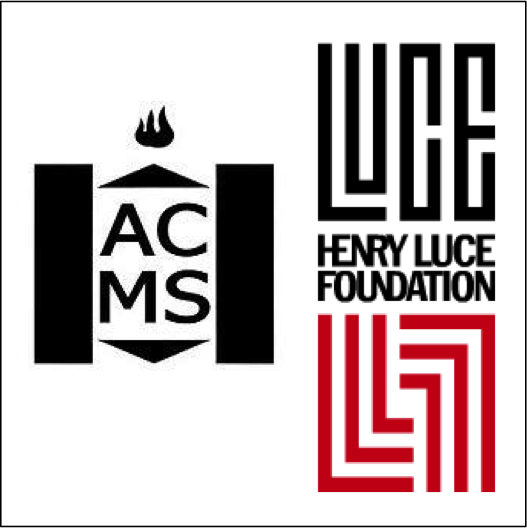 Based on the success of the 2019 program, the ACMS Field School is seeking educators who are interested in teaching in the 2020 ACMS Field School program. Proposals are welcome from faculty, advanced graduate students, and practitioners interested in teaching a field course on site in Mongolia. Based on the success of the 2019 program, the ACMS Field School is seeking educators who are interested in teaching in the 2020 ACMS Field School program. Proposals are welcome from faculty, advanced graduate students, and practitioners interested in teaching a field course on site in Mongolia.
The 2020 Field School offers the opportunity to build on the success of the 2019 program and offer new course programs. The final dates have not been set, but tentative dates are from July 27-August 14, 2020, starting and finishing in Ulaanbaatar.
ACMS supports the arrangement of advertisement, registration, teaching and field visit logistics, and efforts are made to foster cross-learning among students in different course streams of the program.
ACMS strongly believes in creating opportunities for people with little knowledge of Mongolia to learn more about the country, helping those with prior experience in Mongolia to expand their base, and connecting international participants with Mongolian students, scholars and resources.
Expressions of interest are considered on a rolling basis and are to be submitted for consideration before September 25, 2019. An expression of interest can be brief but should include:
1. A short description of a potential topic area with a descriptive course title
2. Information on the relevant experience of the instructor with a focus on previous field teaching and Mongolian experience
3. Thoughts on the expected audience of the program
You are encouraged to identify a potential Mongolian or international co-instructor, and to discuss ways to develop the audience for your program such as bringing students from your home university, a course on a popular/timely issue, students in a particular field, or identified groups such as K-12 teachers, families, etc.
The Expression of Interest is considered a preliminary proposal, and everyone who submits one will be contacted by a Field School staff member for further discussions to explore ideas.
Before submitting an expression of interest you may want to discuss ideas with current ACMS Field School instructors or ACMS staff members. Charles Krusekopf, ACMS Field School Director, is available at ckrusekopf@mongoliacenter.org or you can contact the ACMS office at info@mongoliacenter.org
The 2019 Field School attracted more than 120 applicants from Mongolia and North America, including undergraduates, graduates, faculty and adult learners. The Field School is an annual event and will add new course selections for 2020 and later years, given the strong demand shown in 2019.
The 2019 Field School program included three course topics in field archaeology, renewable energy and rural-urban migration. Each topic included 18 days of study and travel, was taught in English and included approximately 20 students -- 10 international students and 10 Mongolian students. Students in 2019 were multi-age and included undergraduates, graduates, K-12 teachers and other interested individuals.
The approach is inter-disciplinary and inclusive, and designed to support people who are new to Mongolia as well as those with more experience in the country. Students have the potential to obtain academic credit for the program, and learn field research techniques and work on a personal topic of interest.
The 2019 program took place from July 29 - August 16 and included time in Ulaanbaatar as well as field sites in Darkhan and Khuvsgul. Program development is supported by the Henry Luce Foundation and more than $30,000 in fellowship funding was given to participants.
More information on the program is available on line here: https//mongoliacenter.org/acms-mongolia-field-school-2019/. The 2020 program will build on the foundations of the 2019 program, but will incorporate new approaches based on lessons learned and the interests of the potential faculty.
Some areas of potential interest for future Field School courses include (other fields/ideas are also welcome; this list is not exhaustive, it simply offers some illustrative ideas):
Mongolian Buddhism and religions
Mongolian medicine
Public Health in Mongolia
Renewable energy use and development
Balancing economic development and environmental protection
Meeting challenges -- employment, water, etc.
Design thinking to solve issues such as air pollution, access to clean water, etc.
Urban and regional planning
Mongolian history
Archaeology
Grasslands science
Nomadism
Climate Change in Mongolia
Documenting and preserving cultural heritage
Field School instructors receive a stipend and travel support for delivering the field school course. General terms/timelines for 2020 Field School instructors include:
1. Develop a course description in Fall 2019 and participate in promotional activities for the Field School and organizational discussions
2. Develop a detailed course syllabus and teaching plan by Spring 2020, working wtih ACMS to develop site visits, lectures, and guest speakers
3. Review applications from selected participants and make recommendations on the award of fellowship funds
4. Be on site in Mongolia for a minimum of three weeks in summer 2020 to participate in implementation activities and deliver the field school course in Ulaanbaatar and at appropriate field sites
5. The Field School course may be co-taught with international and/or Mongolian counterparts
For more information, please contact:
ckrusekopf@mongoliacenter.org (e-mail address);
you may also contact ACMS at:
info@mongoliacenter.org
Expressions of interest are requested no later than September 15, 2019 to facilitate the advertisement of the 2020 Field School in Fall 2019.
**********************************************
MEDIA REFERENCES
 During the past several weeks, there have been multiple references in both English and Mongolian to the inaugural ACMS Summer Field program, supported by the Henry Luce Foundation.This included social media posts by the US and Canadian Embassies as well as the Mongolian Foreign Ministry and National Museum of Mongolia.The program was also covered on Mongolian television, as indicated in the link to the Mongolian National Broadcasting (MNB) program here.
**********************************************
ACMS was featured in the opening paragraph of an AKI Press news story, posted under the title "800 Year Old Vases Containing Frozen Clotted Cream Found from Glacier in Mongolia" posted on August 16; a video version that appeared on Mongolian National Broadcasting is available here:
The Umgard Mongolia joint research team of the National Museum of Mongolia, the University of Pittsburg in the U.S. and the American Center for Mongolian Studies has come across a rare finding of three vases full of clotted cream and one vase with yellow butter that was frozen in glacial (ice) about 700-800 years ago.
The finding of this summer's excavation is considered to possibly be a new discovery for the international archaeology scene . . . during the research team's work on the protection of looted tombs relating to the Mongolian Empire . . . they came across a large amount of artifacts that are highly significant.
The research team is being led by the head of the Research Center at the National Museum of Mongolia Dr. J. Bayarsaikhan and by Dr. Julie Clark.
The story was also picked up and posted by other media outlets including Montsame and Xinhuanet.
**********************************************
Former ACMS Fellow Alexander C. Diener recently published an article in the journal Mobilities, based in part on his ACMS-supported research in Mongolia. The article is titled "Axial Development in Mongolia: Intended and Unintended effects of New Roads" and was posted on 15 August, 2019:
Mongolia axial development strategy provides an opportunity to consider the intended and unintended effects of introducing paved roads into regions where none exist. This article anlayzes data from a 125-person survey, 128 semi-structured interviews, and participant observation in sites proximate to and distant from roads in six counties within three Mongolian provinces. We consider how roads engender connectivity and distantiation simultaneously in the re-shaping of Mongolia's socio-economic geographies and rearranging of mundane spaces of everyday life.
**********************************************
 Although not specifically mentioned in the series, National Public Radio (NPR) reporter Emily Kwong consulted with ACMS several times while preparing her well-received reports focusing on environmental issues in Mongolia ("Changing Mongolia: How Human Migration, Booming Mines and Climate Change Are Affecting the Country") : Although not specifically mentioned in the series, National Public Radio (NPR) reporter Emily Kwong consulted with ACMS several times while preparing her well-received reports focusing on environmental issues in Mongolia ("Changing Mongolia: How Human Migration, Booming Mines and Climate Change Are Affecting the Country") :
Mongolia's Long Road to Mining Wealth
Mongolia's Capital Banned Coal to Fix its Pollution Problem. Will it Work?
The Deadly Winters that have Transformed Life for Herders in Mongolia
Losing the Eternal Blue Sky in Mongolia
ACMS INDIVIDUAL MEMBERSHIP RENEWALS
It is approaching that time of year again -- ACMS membership renewals generally follow our fiscal year of October 1st to September 30th. That means it may again be time to renew your membership. If you are not already a member of the ACMS, please consider becoming a member.
WE ARE ALSO PLEASED TO ANNOUNCE A SPECIAL "BACK TO SCHOOL" INCENTIVE FOR NEW STUDENT MEMBERS, VALID ONLY FOR THE MONTH OF SEPTEMBER: RENEW YOUR STUDENT MEMBERSHIP (OR BECOME A STUDENT MEMBER FOR THE FIRST TIME) BY THE END OF THIS MONTH AND YOU WILL RECEIVE A SPECIAL DISCOUNT:
FOR INTERNATIONAL STUDENT MEMBERS, THE COST OF MEMBERSHIP FOR THE NEXT FISCAL YEAR (OCTOBER 1, 2019 - SEPTEMBER 30, 2020) IS ONLY $20, RATHER THAN THE REGULAR $40;
FOR MONGOLIAN STUDENT MEMBERS, THE COST OF MEMBERSHIP FOR THE NEXT FISCAL YEAR (OCTOBER 1, 2019 - SEPTEMBER 30, 2020) IS ONLY 10,000 MNT, RATHER THAN THE REGULAR 20,000 MNT!
Please note that ACMS Members, both "regular" and "student" members," are an important part of the governance of the organization, having voting rights to elect “At-Large” representatives to the Board of Directors. The Board of Directors is the governing body of the organization, having authority over all programs and activities. Members, both individual and institutional, therefore have a direct stake in the future development of the organization.
Membership is open to individuals, corporations, and institutions that support the ACMS mission of promoting scholarship in Mongolia, and dues go directly towards supporting the programmatic and administrative expenses of the organization. As a registered 501(c)3 non-profit, academic organization, membership dues and other donations paid to the ACMS are tax deductible in the United States.
For more information on member benefits and membership options, please see our membership page.
**********************************************
ACMS INSTITUTIONAL MEMBERSHIP RENEWALS
ACMS institutional membership typically ends on September 30, marking the conclusion of the fiscal year (though some institutions enroll in a three-year membership -- an approach that ACMS welcomes and very much appreciates)!
The current ACMS institutional membership list includes the following:
BioRegions International
Colorado State University
Columbia University
Macalester College
Mercer University
Principia College
Royal Roads University
Rutgers University
School for International Training (SIT)
Smithsonian Institute
University of Alaska-Anchorage
University of Arizona
University of British Columbia
University of California-Berkeley
University of Kansas
University of Nebraska-Lincoln
University of North Georgia
University of Pennsylvania
Western Washington University
Yale University
Institutions that are currently ACMS members are requested to renew their $200 membership fee as soon as possible; other institutions are most welcome to join for the first time.
For more information on member benefits and membership options, please see our membership page
For questions on membership or any other concerns, feel free to contact ACMS Executive Director Jonathan Addleton: jaddleton@mongoliacenter.org
|
|
ACMS Sponsored Programs and Events
|
|
ACMS SPEAKER SERIES
Dr. Saruul-Erdene Myagmar: "What Happened in 1973? Attempts to Open Diplomatic Relations Between Mongolia and the United States through Private Memoirs"
5:30 PM on Tuesday, September 10 at the American Corner, Ulaanbaatar Public Library
 During the 1970s, US Foreign Service Officer William A. Brown came into contact with a diplomat from the People's Republic of Mongolia. After the State Department decided to move ahead with opening a US Embasy in Mongolia, Mr. Brown was sent to the University of Leeds in the UK to learn Mongolian in preparation for a potential Mongolia assignment. But when the US expressed interest in opening an Embassy in Ulaanbaatar, the diplomatic channel with Mongolia went silent. During the 1970s, US Foreign Service Officer William A. Brown came into contact with a diplomat from the People's Republic of Mongolia. After the State Department decided to move ahead with opening a US Embasy in Mongolia, Mr. Brown was sent to the University of Leeds in the UK to learn Mongolian in preparation for a potential Mongolia assignment. But when the US expressed interest in opening an Embassy in Ulaanbaatar, the diplomatic channel with Mongolia went silent.
What happened? The answer to this question lies partly in the memoir Unen Uchryg Oguulbeev (NEPKO Publishing, 2016), written by well-known Mongolian diplomat Yondon. This book, combined with in-person interviews with William A. Brown who served as Ambassador to Thailand (1985-1988) and Israel (1988-1992), provides important insights into the long saga of attempts to establish diplomatic relations between the US and Mongolia over several decades. Additionally, the speaker will draw on documents related to Dilowa Khutugtu's earlier attempts to establish diplomatic relations with the United States.
Dr. Saruul-Erdene Myagmar has a PhD in Linguistics and works as a Mongolian Specialist/Librarian in the Asia & Middle Eastern Division of the Library of Congress. He is also Special Correspondent for Oedriin Sonin (Daily News) in Washington, DC. An At-Large ACMS Board Member, he previously served as Mongolian Language Instructor at the Foreign Service Institute (2007-2019); Visiting Scholar at Indiana University (2002-2007); and Lecturer at the Mongolian State University of Education (1994-2002).
**********************************************
Oyungerel Tsedevdamba and Jeffrey L. Falt: "The Green-Eyed Lama"
5:30 PM on Tuesday, August 6 at the American Corner, Ulaanbaatar Public Library
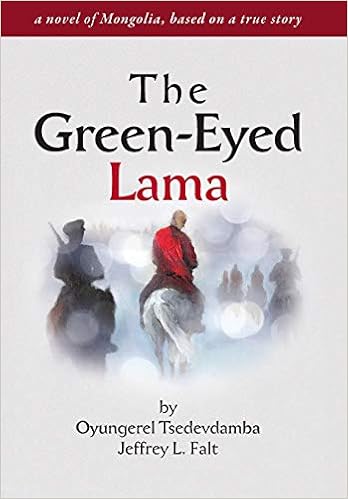 As part of the ongoing ACMS Speaker Series, authors Oyungerel Tsedevdamba and Jeff Falt talked about their award-winning historical epic on Mongolia, The Green-Eyed Lama. First published in Mongolian, the book chronicles the triumphant romance between Sendmaa, a young countryside woman and Baasan, a monk, as they try to cope with the turmoil of political purges, terrible massacres and the executions of thousands of lamas and laymen alike during the turbulent Soviet period. As part of the ongoing ACMS Speaker Series, authors Oyungerel Tsedevdamba and Jeff Falt talked about their award-winning historical epic on Mongolia, The Green-Eyed Lama. First published in Mongolian, the book chronicles the triumphant romance between Sendmaa, a young countryside woman and Baasan, a monk, as they try to cope with the turmoil of political purges, terrible massacres and the executions of thousands of lamas and laymen alike during the turbulent Soviet period.
The novel has since been published in both French and English (where it is available on amazon.com). It is also the first volume in the continuing "Guardian" saga that tells the story of a community on Mongolia's northern border with Russia. The second volume, titled The Sixty White Sheep, was published in Mongolian in 2017. Two other follow-on volumes are now in the research stage.
Jeffrey L. Falt is a lawyer with multiple degrees from the Universitiy of California-Berkeley. After serving as a legal aid attorney in rural California, he turned his focus to human rights law, court reform and access to justice for marginalized communities in Asia and Africa, assisting organizations such as the Asia Foundation, Amnesty International, American Bar Association and USAID and working in Liberia, East Timor, Nepal, Sri Lanka, Cambodia and elsewere. Jeffrey and Oyungerel met in Mongolia in 2000 and married in 2004.
Oyungerel Tsedevdamba grew up in the Mongolian countryside during the Soviet era, receiving a scholarship to study in the Soviet Union. She was later awarded a Masters degree from Stanford University where she was also a Fulbright Fellow; she has also been an Eisenhower Fellow and a World Fellow at Yale University. From 2000 until 2004 she headed the Liberty Center, at the time Mongolia's most active human rights organization. She later served as advisor to both the President and Prime Minister of Mongolia on human rights issues and also headed the Democratic Women's Union. A Member of Parliament, she served as Minister of Culture, Sports and Tourism. She has authored 11 books and co-authored two others.
The video version of this ACMS Speaker Series talk has already been posted on the ACMS YouTube channel and is available here.
**********************************************
NOTE: Brian Goldbeck's July 24, 2019 ACMS lecture on President Bush's 2005 Visit to Mongolia: A Bilateral Milestone has now been posted on the ACMS YouTube channel and is available here.
The link was later tweeted by Mongolian Foreign Minister Tsogtbaatar, making it available to his 40,000 plus followers! |
|
|
|
|
NO ANNOUNCEMENTS FOR POSITION OPENINGS RECEIVED THIS MONTH
|
|
Research Fellowships, Scholarships and Grants |
|
NO ANNOUNCEMENTS FOR RESEARCH FELLOWSHIPS, SCHOLARSHIPS AND GRANTS RECEIVED THIS MONTH
|
|
|
|
|
MONGOLIAN ROCK BAND "HU" LAUNCHES THREE-MONTH NORTH AMERICAN CONCERT TOUR IN SEPTEMBER
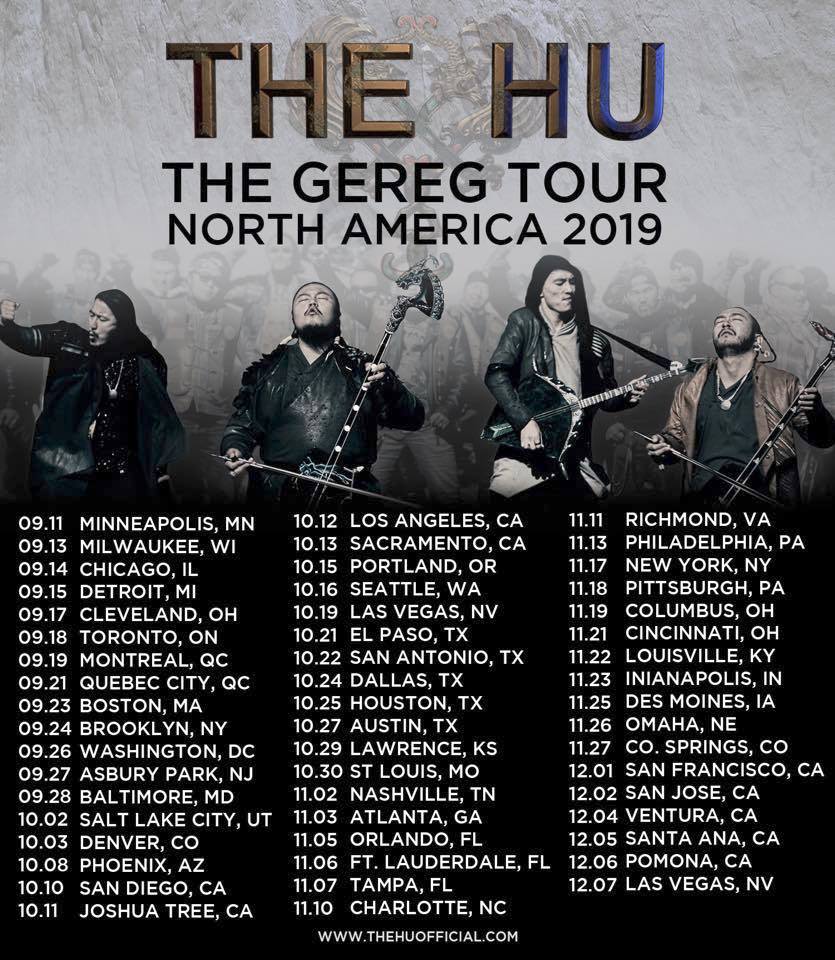 The Mongolian rock band "Hu" with millions of Spotify hits and a large following in Asia and Europe is making its North American debut this fall, starting on September 11 in Minneapolis and ending on December 7 in Las Vegas. The Mongolian rock band "Hu" with millions of Spotify hits and a large following in Asia and Europe is making its North American debut this fall, starting on September 11 in Minneapolis and ending on December 7 in Las Vegas.
Other cities visited during this upcoming tour include Asbury Park (NJ), Atlanta, Baltimore, Boston, Brooklyn, Charlotte (NC), Chicago, Cincinnati, Cleveland, Colorado Springs, Columbus (OH), Denver, Detroit, El Paso, Indianapolis, Joshua Tree (CA), Los Angeles, Louisville, Milwaukee, New York, Omaha, Philadelphia, Phoenix, Pittsburgh, Pomona (CA), Portland, Richmond (VA), Sacramento, San Francisco, San Jose, Seattle, Toronto, Salt Lake City, San Diego, Santa Fe, Ventura (CA) and Washington, DC.
For more details and a music trailer, see the link here.
*********************************************
UNIVERSITY OF PENNSYLVANIA HOSTS CONFERENCE ON MIDDLE-PERIOD MONGOLIAN ARCHAEOLOGY (OCTOBER 26-27, 2019)
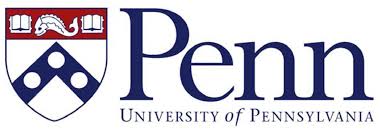 The University of Pennsylvania has announced a major conference on Middle-Period Mongolian Aracheology that will take place on October 26-27 in Philadelphia. The University of Pennsylvania has announced a major conference on Middle-Period Mongolian Aracheology that will take place on October 26-27 in Philadelphia.
The conference is free and open to the public. However, advance registration is required.
DAY ONE (October 26) is tentatively scheduled to take place in the Ben Franklin Room at College Hall, featuring a program that includes:
Christopher Atwood (University of Pennsylvania) on Inner Asia History: Major Discoveries and Unsolved Problems in the Light of Archaeology
Wei Jian (Renmin University) on Most Important Discoveries and Unsolved Problems of Middle-Period Archaeology: The View from Beijing
Nikolai Kradin (Institute of History, Archaeology and Ethnology) on Most Important Discoveries and Unsolved Problems of Middle-Age Period Archaeology: The View from Vladivostok
Lkhagvasuren Erdenebold (Mongolian University of Science and Technology) on Most Important Discoveries and Unsolved Problems of Middle-Period Archaeology: The View from Ulaanbaatar
Concluding Round Table discussion led by Valerie Hansen (Yale University) and Nicola Di Cosmo (Institute for Advanced Study)
DAY TWO (October 27) will take place in the Widener Lecture Hall at the Museum of Archaeology and Anthropology, featuring a program that includes:
Jan Bemmann (University of Bonn) on Most Important Discoveries and Unsolved Problems of Middle-Period Archaeology: The View from Bonn
Kang in Uk (Kyung Hee University) on New Discoveries in the Relationship Between Balhae and the Uighur Khanate, Based on the Koksharovka Archaeological Complex in the Far East Region of Russia
Alexandr Naymark (Hofstra University) on Gold Imitations of Western China and Bracteats from Mongolia and Their Connection to Finds in Western Central Asia
Annie Chan (Ludwig Maximillian University) on Corporeal Variability and Commemorative Rituals of Turkic Anthropomorphic Stelae from Xingjian, Tuva and Mongolia
Ah-Rim Park (Sookyong Women's University) on Steppe Statuary of the 7th-8th Centuries
Bryan Miller (University of Michigan) on Through the 'Dark Ages': An Archaeological Perspective on the (Re)Emergence of Steppe Empires in the Mid-First Millennium CE
Petya Andreeva (Parsons School of Design) on Portable Luxury: Metalwork of the Golden Horde Elite
Closing Discussion led by Nancy Steinhardt (University of Pennsylvania)
Funding for this conference is provided by the Penn Global Engagement Fund, University Research Foundation and the School of Arts and Science at the University of Pennsylvania.
For more details on the conference program including registration details, visit here.
*********************************************
UNIVERSITY OF GRONINGEN (NETHERLANDS) HOSTS NOVEMBER CONFERENCE ON CONTEMPORARY MONGOLIA: INTERNATIONAL RELATIONS, MINING AND THE ENVIRONMENT
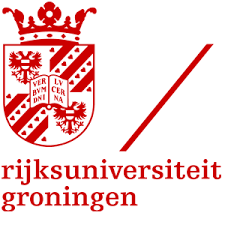 The Center for East Asian Studies Groningen (CEASG) along with the National Council for Mongolian Studies is sponsoring a conference on Mongolia, scheduled for November 29, 2019. The event will be held at the University of Groningen in the Netherlands. The Center for East Asian Studies Groningen (CEASG) along with the National Council for Mongolian Studies is sponsoring a conference on Mongolia, scheduled for November 29, 2019. The event will be held at the University of Groningen in the Netherlands.
Titled Contemporary Mongolia: International Relations, Mining and the Environment, the schedule includes three panels:
1. International Relations/International Cooperation, covering topics such as the Belt and Road Initiative, Third Neighbor Policy, foreign policy and foreign assistance;
2. Mining and Natural Resources, covering foreign direct investment, energy, security, taxation agreements and the political economy of natural resource development;
3. Environment and Climate, covering desertification, climate change and the impact of mining on the environment, among other topics.
The deadline for submitting proposals for a conference presentation was June 30, 2019, with presentations potentially available for publication in a conference volume published by Brill; additional details are available here.
For further information, contact Professor Tjalling Halbertsma (CEASG) at the following e-mail address: t.h.f.halbertsma@rug.nl; those interested in attending the event can also contact CEASG direclty at ceasg@rug.nl
*********************************************
OTHER UPCOMING MONGOLIA-RELATED EVENTS SCHEDULED FOR SEPTEMBER
The Women Entrepreneur's Initiative on the Green Economy will take place on September 6-7 at Red Rock Hotel and Resort in Terelj National Park, not far from Ulaanbaatar. The event is sponsored by the Mongolian National Chamber of Commerce and Industry's Women's Entrepreneur's Council. The objective is to raise awareness about opportunities provided by "green growth, learn from experts on the "greening" of the economy and support partnerships aimed at expanding business in an environmentally and socially sound way. Over 200 female entrepreneurs from rural areas, researchers, donors, public and private representatives and others are expected to attend. For registration and other details, access the Forum website here.
The Sixth International Symposium for Health Research will take place at the Novotel Hotel in Ulaanbaatar on September 18-19, 2019. Prospective participants include high level Mongolian officials and a broad range of international researchers. Duke University's One Health Program is assuming a lead role. For further information, contact Amber Barnes: amber.barnes@unf.edu or access the conference website here.
The 2019 Annual Politics and History Association (APHA) conference will take place in Ulaanbaatar from September 24 through September 28, 2019. Sponsors include Clarewood University, Blue Banner Foundation, International Society for the Comparative Study of Civilizations and The Mongolia Society. This year's conference will focus on Challenges Confronting Asia Today: Nuclear Proliferation, Environmental, Economic, Civilizational. Those interested in more information should contact Dr. Mark Zhong (mzhong@clarewoodva.org) or Dr. Alicia Campi (usmagcapi@aol.com). More information on the upcoming APHA Annual Conference is available here.
|
|
|
|
|
RECENT ARTICLES ON MONGOLIA AVAILABLE ONLINE
Once again there were a number of interesting and informative posts related to Mongolia during the last month; notable examples include:
Siberian Times, posted on August 30, 2019: "Amazon Woman Warrior" from 14th Century found by Siberian Archaeologists in Mongolia"
Forbes, posted on August 27, 2019: Meet the Sisters Behind Mongolia's Hottest -- and Most Progressive -- Fashion Brand, Michel and Amazonka
Military.com, posted on August 27, 2019: Japan Strikes North: How the Battle of Khalkhin Gol Transformed World War II
Mongolia News, posted on August 26, 2019: Celebrating the Khalkin Gol Victory: Program
Landscape and Urban Planning, posted on August 25, 2019: Spatiotemporal Changes of Informal Settlements: Ger Districts in Ulaanbaatar, Mongolia
South China Morning Post, posted on August 22, 2019: LBGTI in Mongolia Fighting for Rights and Recognition
Sci News, posted on August 19, 2019: Archaeologists Unearth 45,000 Year-Old Stone Tools in Mongolia
AKI Press, posted on August 16, 2019: 800-Year-Old Vases Containing Frozen Clotted Cream and Yellow Butter Found from Glacier in Mongolia
UC-Davis, posted on August 16, 2019: Humans Migrated to Mongolia Much Earlier than Previously Believed
Yes!, posted on August 15, 2019: Post-Soviet Co-Ops: Mongolian Herders Borrow a Tool from the Recent Past
Mobilities, posted on August 15, 2019: Axial Development in Mongolia: Intended and Unintended Effects of New Road
Nature, posted on August 13, 2019: The Northern Route for Human Dispersal in Central and Northeast Asa: New Evidence from the Site of Tolbor-16, Mongolia
Washington Post, posted on August 8, 2019: Trump Administration and Mongolia are Getting Cozy. Here's Why.
New York Times, posted on August 8, 2019: Welcome to Mongolia, Mr. Defense Secretary. Here's Your Horse
Military Times, posted on August 8, 2019: Pentagon Chief in Mongolia to Strengthen Military Bonds
Diplomat, posted on August 5, 2019: US Becomes Mongolia's Fifth Strategic Partner
Mongolian and Tibetan Quarterly, posted on June 28, 2019: Current Trends of Mongolian Studies in the USA (this is the English translation of an article by Wei-Chieh Tsai from Indiana University, originally written in Chinese)
*********************************************
OXFORD UNIVERSITY PRESS ANNOUNCES FORTHCOMING COLLECTION OF ESSAYS ON SOURCES OF MONGOLIAN BUDDHISM
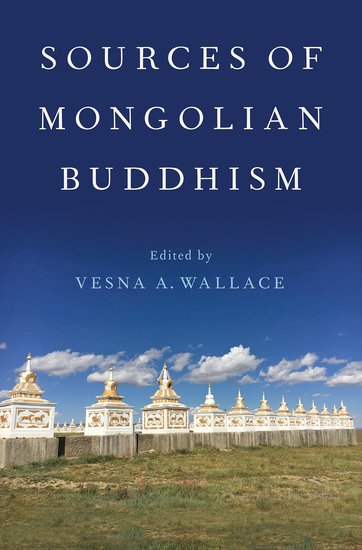 Oxford University Press has announced a forthcoming book on Sources of Mongolian Buddhism, edited by Vesna Wallace; the hardcover version, available later this year, will cost $150. Oxford University Press has announced a forthcoming book on Sources of Mongolian Buddhism, edited by Vesna Wallace; the hardcover version, available later this year, will cost $150.
According to advance publicity, the book "features original Mongolian Buddhist texts never translated into English, making available examples of literature from the seventeenth century onwards and "introducing a fresh approach to understanding Tibeto-Mongolian Buddhism through primary sources".
The same publisher's statement notes that "Despite Mongolia's centrality to East Asian history and culture, Mongols themselves have often been seen as passive subjects on the edge of the Qing formation or as obedient followers of so-called 'Tibetan Buddhism', peripheral to major literary, religious and political developments. But in fact Mongolian Buddhists produced multi-lingual and genre-bending scholastic and ritual works that profoundly shaped historical conciousness, community identification, religious knowledge and practices in Mongolian lands and beyond".
The table of contents also gives a sense of what to expect in this pioneering new volume, including multiple articles by a variety of leading Mongolian scholars including Brian Bauman ("The Stone Inscriptions of Covtu Talji"); Sangseraima Ujeed ("The Autobiography of the First Khalkha Zaya Pandita Lobsang Trinley"); Matthew W. King ("Miscellaneous Writings of Caqar Gebsi Luvsancultem," "Incense Offerings to the Lord Chingghis Khan" and "The Legand of Mother Tara the Green"); Vesna Wallace ("Teachings of the Pious Fat Pandita Tsevelvaanchigdorj" and "Ritual Texts of Prosperity and Purification"); Uranchimeg Ucheed ("Mergen Gegeen's Didactic Poetry" and "Ritual Texts of Murgeen Gegeen"); and Simon Wickham-Smith ("Buddhist Literature of Danzan Ravjaa", "Literary Treatments of Buddhism in the Period of Transition" and "Contemporary Buddhist Poetry and Fiction"), among many others.
Vesna A. Wallace is Professor of South Asian Religions and Inner Asia Buddhist Studies in the Department of Religious Studies at the University of California in Santa Barbara. She has authored and translated four books on Indian Buddhism. Her most recent book is an edited volume on Mongolian Buddhism titled Buddhism in Mongolia: Culture, History, and Society.
*********************************************
THREE BOOKS ON MONGOLIAN ART PUBLISHED IN ULAANBAATAR
Art historian and critic Uranchimeg Tsultem, currently Assistant Professor in the Herron School of Art and Design at Indiana University, announces three books on various aspects of Mongolian art, all published in Mongolia during the last couple of years:
Primary Documents of Contemporary Mongolian Art Association (Ulaanbaatar: BCI, 2018). Richly illustrated, this is the first and only book that includes primary sources such as manifestos, resolutions, artist interviews, critical reviews, etc. that span a history of various art associations and societies related to contemporary Mongolian art from 1986 to the present. Most documents are in Mongolian but some interviews are in English.
 Collection of Art Essays, 1993-2018 (UIaanbaatar: Admon, 2018). This volume includes Uranchimeg's essays on various topics, mostly involving modern and contemporary Mongoiian art and artists during the period 1993-2018. The book has three sections, the first is focused on critically acclaimed essays from around 2000; the second includes essays appearing in English in the Mongol Messenger during the period 1993-2000; and the third provides recent scholarly articles in English, based partly on research and teaching at the University of California-Berkeley. Collection of Art Essays, 1993-2018 (UIaanbaatar: Admon, 2018). This volume includes Uranchimeg's essays on various topics, mostly involving modern and contemporary Mongoiian art and artists during the period 1993-2018. The book has three sections, the first is focused on critically acclaimed essays from around 2000; the second includes essays appearing in English in the Mongol Messenger during the period 1993-2000; and the third provides recent scholarly articles in English, based partly on research and teaching at the University of California-Berkeley.
Buddhist Art and Architecture of Ikh Khuree (Ulaanbaatar: BCI, 2016). This monograph is largely based on Uranchimeg's PhD dissertation undertaken at the University of California-Berkeley.
*********************************************
CROSS CURRENTS OPEN ACCESS E-JOURNAL POSTS SPECIAL ISSUE ON MONGOLIAN BUDDHIST ART
This collection of four articles and two photo essays on Mongolian Buddhist Art is available to the public via the 31st quarterly issue of the open access e-journal Cross Currents: East Asian History and Culture Review
This edition of Cross Currents was guest edited by art historian and critic Uranchimeg Tsultem and focuses especially on the political, economic and social context of Inner Asia and especially the Tibet-Mongolian interface in art.
 Specific articles of interest include: Specific articles of interest include:
Uranchimeg Tsultem (Indiana University): Introduction to Buddhist Art of Mongolia: Cross-Cultural Connections, Discoveries and Interpretations
Uranchimeg Tsultem (Indiana University): Buddhist Archaeology in Mongolia: Zanabazar and the Geluk Diaspora Beyond Tibet
Karenina Kollmar-Paulenz (University of Bern): Visualizing the Non-Buddhist Other: A Historical Analysis of the Shambhala Myth in Mongolia at the Turn of the Twentieth Century
Vesna A. Wallace (University of California-Santa Barbara): The Interplay Between Text and Image: The Molon Toyin's Tale
Isabelle Charleux (Centre National de la Recherche Scientifique): The Cult of the Boudhanath Stupa/Jarung Kashar Suvraga in Mongolia: Text, Images and Architectural Replicas
Sampildondovin Chuluun (Mongolian Academy of Sciences): Photo Essay 1: In Search of the Khutugtu's Monastery: The Site and Its Heritage
Lubos Belka (Masaryk University): Photo Essay 2: Shambhala and the Prague Thangka: The Myth's Visual Representation
*********************************************
RANGELAND SPECIALIST DAN MILLER POSTS TWO PHOTO ESSAYS ON MONGOLIAN COUNTRYSIDE
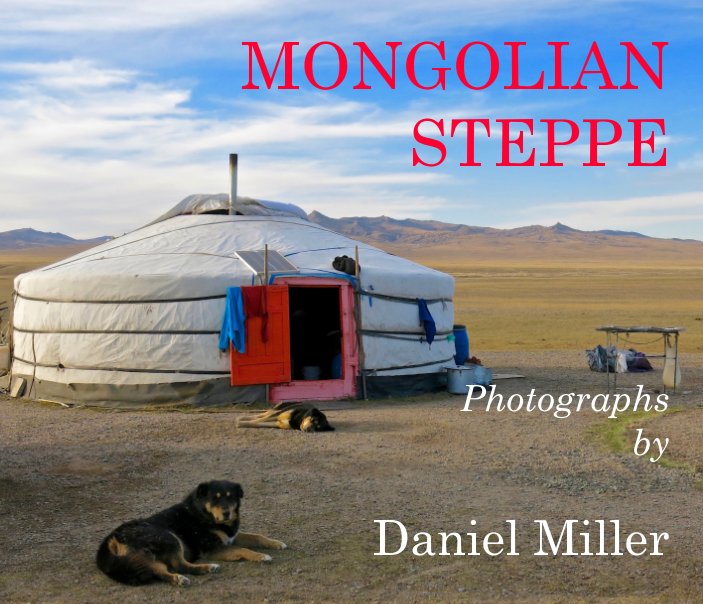 Rangeland specialist Dan Miller who first visited Mongolia in 1992 has been visiting and working in Mongolia for many years, taking numerous photos and publishing a number of photo books on both Mongolia and Tibet along the way. Formerly a USAID officer, he now works in Mongolia for Mercy Corps. Dan's experience on the Tibetan plateau, combined with the fact that he was a cowboy in Montana early in his career, makes his perspective especially interesting. He recently posted two articles on Mongolia in Maptia, notable both for their text and their photographs: Rangeland specialist Dan Miller who first visited Mongolia in 1992 has been visiting and working in Mongolia for many years, taking numerous photos and publishing a number of photo books on both Mongolia and Tibet along the way. Formerly a USAID officer, he now works in Mongolia for Mercy Corps. Dan's experience on the Tibetan plateau, combined with the fact that he was a cowboy in Montana early in his career, makes his perspective especially interesting. He recently posted two articles on Mongolia in Maptia, notable both for their text and their photographs:
Hereford Cattle in Mongolia
Winds of Change on the Mongolian Steppe
*********************************************
COMPANY-FUNDED RESEARCH REPORTS EXPLORE ISSUES ASSOCIATED WITH MINING IN MONGOLIA
Examples of potential additional sources of information on issues related to mining development in Mongolia that involve research conducted by universities include the following:
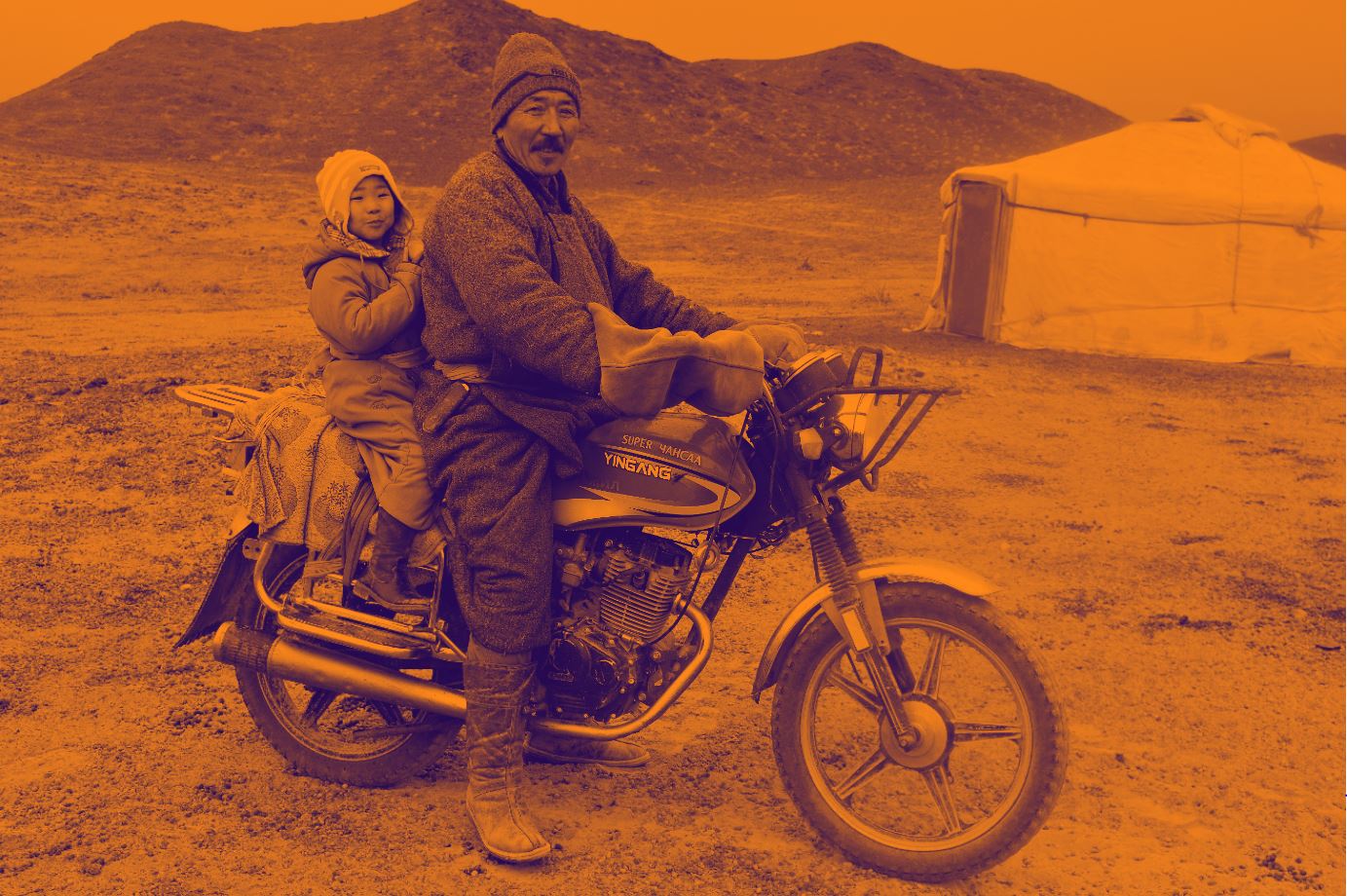 Creating and Sharing Value with Communities in the Early Mine Life-Cycle: The Case of Erdene Resource Development Corporation in Mongolia (University of British Columbia, School of Public Policy and Global Affairs) Creating and Sharing Value with Communities in the Early Mine Life-Cycle: The Case of Erdene Resource Development Corporation in Mongolia (University of British Columbia, School of Public Policy and Global Affairs)
This Final research report, covering the period November 2017 to July 2018, was prepared by Jocelyn Fraser (UBC), Bulgan Batdorj (NBK) and Nadja Kunz (UBC). It focuses especially on stakeholder development during the mineral exploration phase, among other things demonstrating the value of such engagement in the earliest stages of the process.
 A summarized version of the study is available in Resources Policy, providing a more academic version of this same study under the title "Can Mineral Exploration Projects Create and Share Value with Communities? A Case Study from Mongolia" (October 2019) A summarized version of the study is available in Resources Policy, providing a more academic version of this same study under the title "Can Mineral Exploration Projects Create and Share Value with Communities? A Case Study from Mongolia" (October 2019)
Although quite dated, this 2012 report provides another example of this type of study, in this case focusing on historical and cultural preservation in perhaps the most heavily mined part of the country: Protecting the Past, Preserving the Present: Report of Phase 1 Activities of the Oyu Tolgoi Cultural Heritage Program Design for Omnogovi Aimag. Several institutions contributed to this report including the University of Arizona, Mongolian Academy of Sciences and Sustainability Asia LLC. Principal editors include B. Gunchinsuren, Jeffrey H. Altschul and John W. Olsen.
*********************************************
Transcending Patterns: Silk Road Cultural and Artistic Interactions through Central Asian Textile Images by Mariachiara Gasparini (312 pages; 20 color, 27 black and white illustrations; map); hardcover, $74 (Honolulu: University of Hawaii Press, 2019)
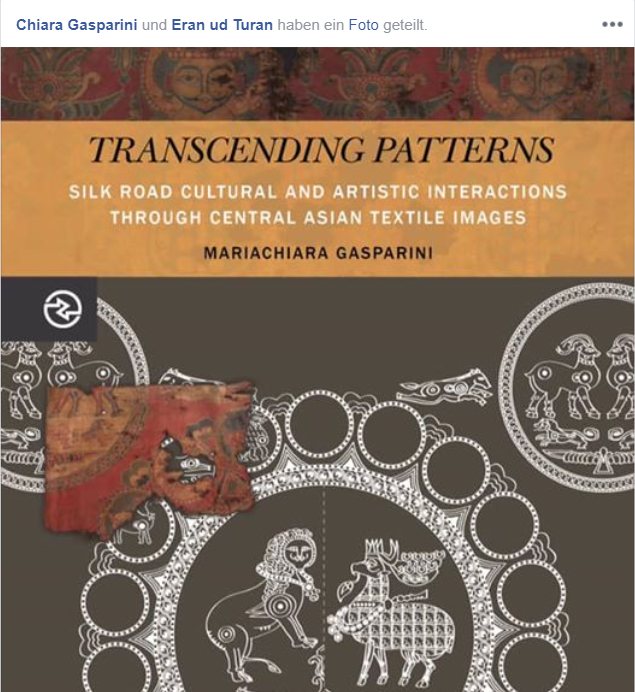 Deploying a transcultural framework that goes far beyond Mongolia, this book analyzes the material forms of silk in China and the various Himalayan Kingdoms including Ladakh. According to reviewer Sarah E. Fraser from Heidelberg University, "It may be too soon to say whether Gasparini has single-handedly engineered a field-changing, barrier-breaking analysis of the stuff that brought the 'Silk Road' trading routes into existence, but we can state with certainty that she has given researchers tools to fabricate concrete arguments for further study" Deploying a transcultural framework that goes far beyond Mongolia, this book analyzes the material forms of silk in China and the various Himalayan Kingdoms including Ladakh. According to reviewer Sarah E. Fraser from Heidelberg University, "It may be too soon to say whether Gasparini has single-handedly engineered a field-changing, barrier-breaking analysis of the stuff that brought the 'Silk Road' trading routes into existence, but we can state with certainty that she has given researchers tools to fabricate concrete arguments for further study"
Mariachiara Gasparini received a PhD in transcultural studies and global art history from Heidelberg University (Germany). Her research focuses on Central Asian material culture, wall-painting, artist's praxis, and Sino-Iranian and Turko-Mongol interactions. She has conducted extensive fieldwork in Asia. Since 2015 she has been teaching Asian art in the San Francisco Bay area.
*********************************************
Inviting Happiness: Food Sharing in Post-Communist Mongolia by Sandrine Ruhlmann; hardcover; $126 (Leiden, Netherlands: Brill, 2019)
 With a publication date of September 26, this book will be welcomed by all those interested in the "anthropology and sociology of alimentation, food sharing and hospitality" as well as "ritual practices, shamanist and Buddhist conceptions" as they relate to the human soul, happiness and meritorious action. With a publication date of September 26, this book will be welcomed by all those interested in the "anthropology and sociology of alimentation, food sharing and hospitality" as well as "ritual practices, shamanist and Buddhist conceptions" as they relate to the human soul, happiness and meritorious action.
As advance material related to this book points out, "For Mongols, sharing food is more than just eating meals. Through a process of 'opening' and 'closing,' on a daily basis or at events, in the family circle or with visitors, sharing food guarantees the proper order of social relations. It also ensures the seasons and cycles of human life. Through food sharing, humans thus invite happiness to their families and herds."
Starting from 2000, Sandrine Ruhlmann has spent long periods of time in Mongolia, living and observing in both rural and urban areas of the country. Based on this research, she "describes and analyzes in detail the contemporary food system and recognizes intertwined ideas and values inherited from shamanism, Buddhism and communist ideology. Through meat-on-the-bone, creamy milk skin, dumplings or sole-shaped cakes, she highlights a whole way of thinking and living".
Sandrine Ruhlmann is researcher of anthropology at the French National Center for Scientific Research. She has published many articles in both French and English on Mongolian food practices and animal diseases governance in a post Soviet context. During a visit to Mongolia, she participated in the ongoing ACMS Lecture Series. This book is the English translation of her earlier work, initially published in French in 2015.
|
|
|
|